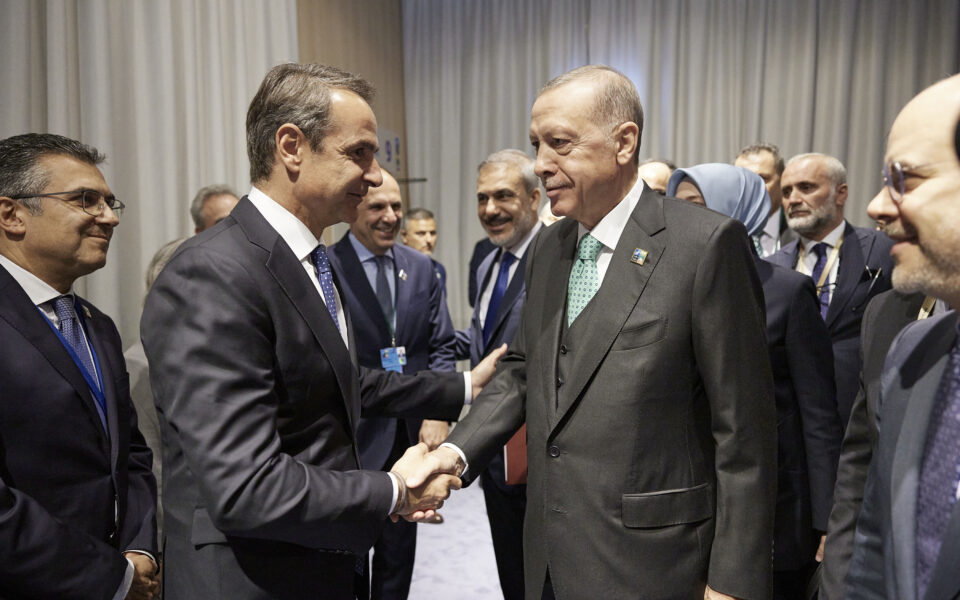The difficult road leading to The Hague
Prime minister determined to explore the prospects of ICJ despite possible political opposition

It will be a difficult road for both Athens and Ankara for the drafting of a compromise in order for the issue of the delimitation of the continental shelves and exclusive economic zones (EEZ) to be referred to the International Court of Justice in The Hague. However, Prime Minister Kyriakos Mitsotakis is reportedly determined to explore the prospect, despite possible political opposition, especially from right-wing parties in Parliament.
The substantial change in methodology employed by Ankara and Ankara postulates the transfer of the initiative to the highest political level, that of the foreign ministers, and the modification and thematic expansion of the process of exploratory contacts– i.e. the forum in which technical issues relating to maritime zones such as territorial waters are discussed.
The two FMs, Giorgos Gerapetritis and Hakan Fidan, will meet at regular intervals every 2-3 months to monitor the progress of discussions as part of a process that Mitsotakis described as a “bold agenda.” Their first meeting will take place in the summer, in order to have a high-level understanding before a possible meeting between Mitsotakis and Erdogan on the sidelines of the UN General Assembly in New York.
The road that Turkey has to travel is much longer than that of Greece to draft an agreement between the two countries in order to appeal to The Hague. Firstly, in a compromise Ankara would have to accept the general compulsory jurisdiction of the ICJ in The Hague.
Moreover, it would have to accept outcomes that are based on an interpretation of the United Nations Convention on the Law of the Sea (UNCLOS). On the basis of such a general acceptance, Turkey would also have to accept that the islands have their own continental shelf, which alters Ankara’s fundamental position of a median line in the Aegean between the shores of mainland Greece and the Turkish coast.
The classification of these discussions is still unclear as over the past years, 64 rounds of exploratory contacts, numerous political dialogue meetings, and multiple technical contacts have created a confusing framework. However, within this framework, the narrowly defined sovereign interests are clearly delineated.
When Mitsotakis said in his recent interview with Skai that “any agreement of this type may possibly, yes, imply some concessions from certain positions which can be the starting point of a negotiation,” he was obviously leaving out any position that touches on Greece’s sovereignty and sovereign rights.





